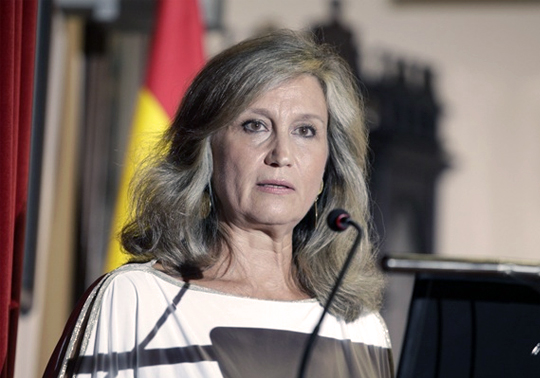María Dolores Bargues, first woman to become President of the Spanish Society of Tropical Medicine and International Health
- November 22nd, 2016

María Dolores Bargues Castelló, Full University Professor of Parasitology at the Universitat de València, has been elected as President of the Spanish Society of Tropical Medicine and International Health (SEMTSI). The election was made during the Society’s General Assembly, which took place after the 10th SEMTSI Meeting in Barcelona with the title “Innovation in Tropical Medicine: bringing diagnosis to populations in need”.
Dolores Bargues is the first woman to be elected as President of the SEMTSI since its foundation. The Society’s inaugural congress was held in Chinchón (Madrid) in 1998, with Dr Bargues as part of the first boards of directors. Currently, SEMTSI has more than 500 associates, representing multiple areas related to tropical diseases and international health.
María Dolores Bargues is the Head of the Molecular Biology Unit, Deputy Director of the WHO collaborating centre on Fascioliasis and Its Snail Vectors and the FAO‑United Nations Reference Centre for Parasitology at the Universitat de València. She is also an expert in Molecular Biology and transmission of fascioliasis at the International Atomic Energy Agency (IAEA). Furthermore, she has been the co-organiser and secretary of the International Master’s Degree Programme in Tropical Parasitic Diseases for 19 years, from 1988 to 2006, when she joined its Coordination Committee. She has been a member of the teaching staff of this Master’s programme for 30 editions. She is also responsible for three international collaboration framework agreements with Brazil, Colombia and Peru.
Dr Bargues’ professional career has mainly focused on Tropical Medicine, dedicating more than 20 years to research on parasitic diseases transmitted by vectors, such as fascioliasis, malaria, leishmaniasis and Chagas disease. She has participated in more than 50 research projects and has been the main coordinator, principal investigator and manager of European projects (INCO and GOCE) in different international, national and regional institutions.
On an international scale, she leads the research group on transmission and vectors of the WHO collaborating centre on Fascioliasis and Its Snail Vectors. She is also a member of prestigious international research networks such as the European Community–Latin American Network for Research on the Biology and Control of Triatominae (ECLAT) and the Collaborative Network of Research on Tropical Diseases (RICET). With more than 150 scientific articles published in several health science journals, she is also the author (or co-author) of 29 book chapters in the same field.
File in: Medicina , Nomenaments
















